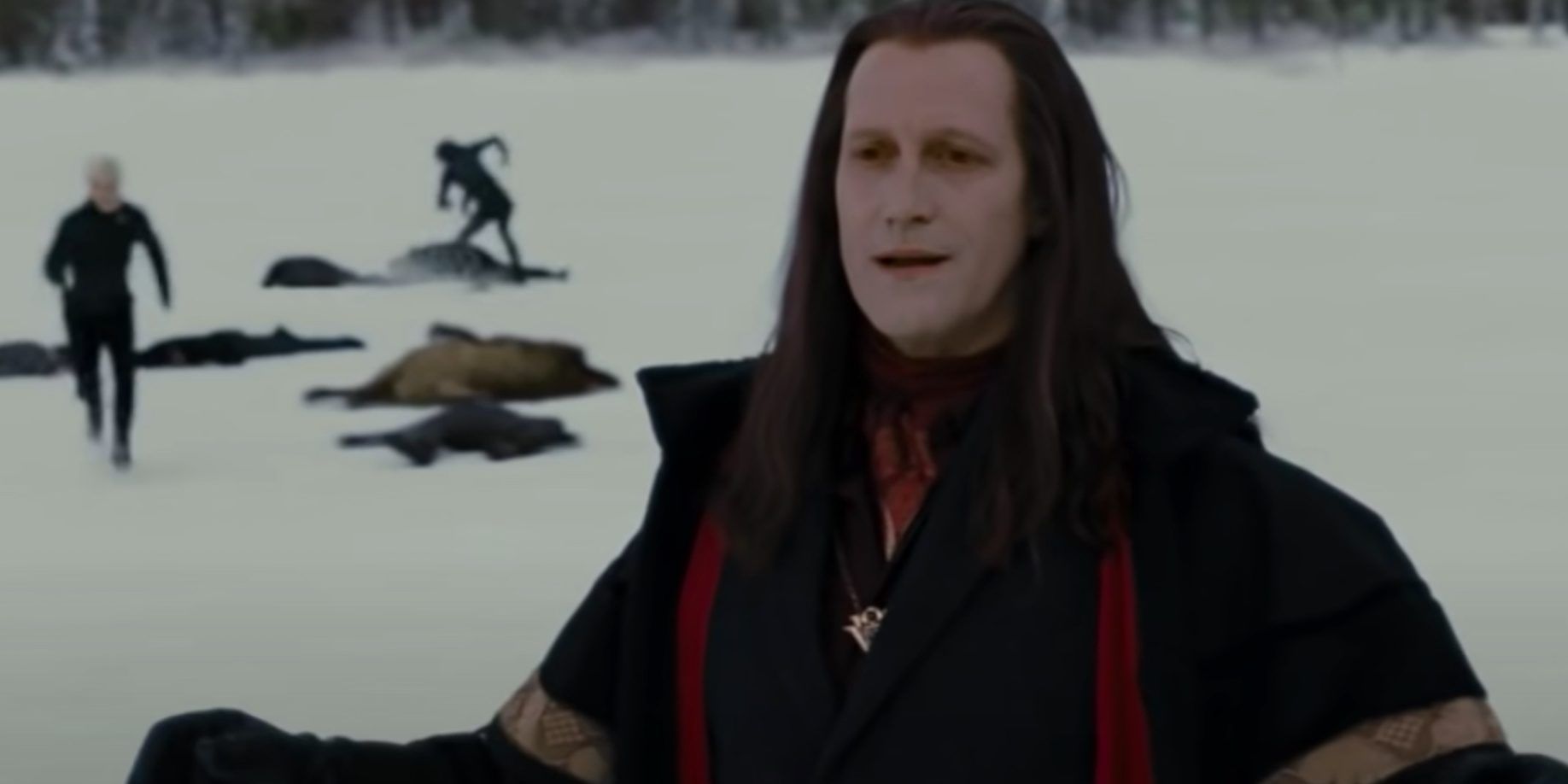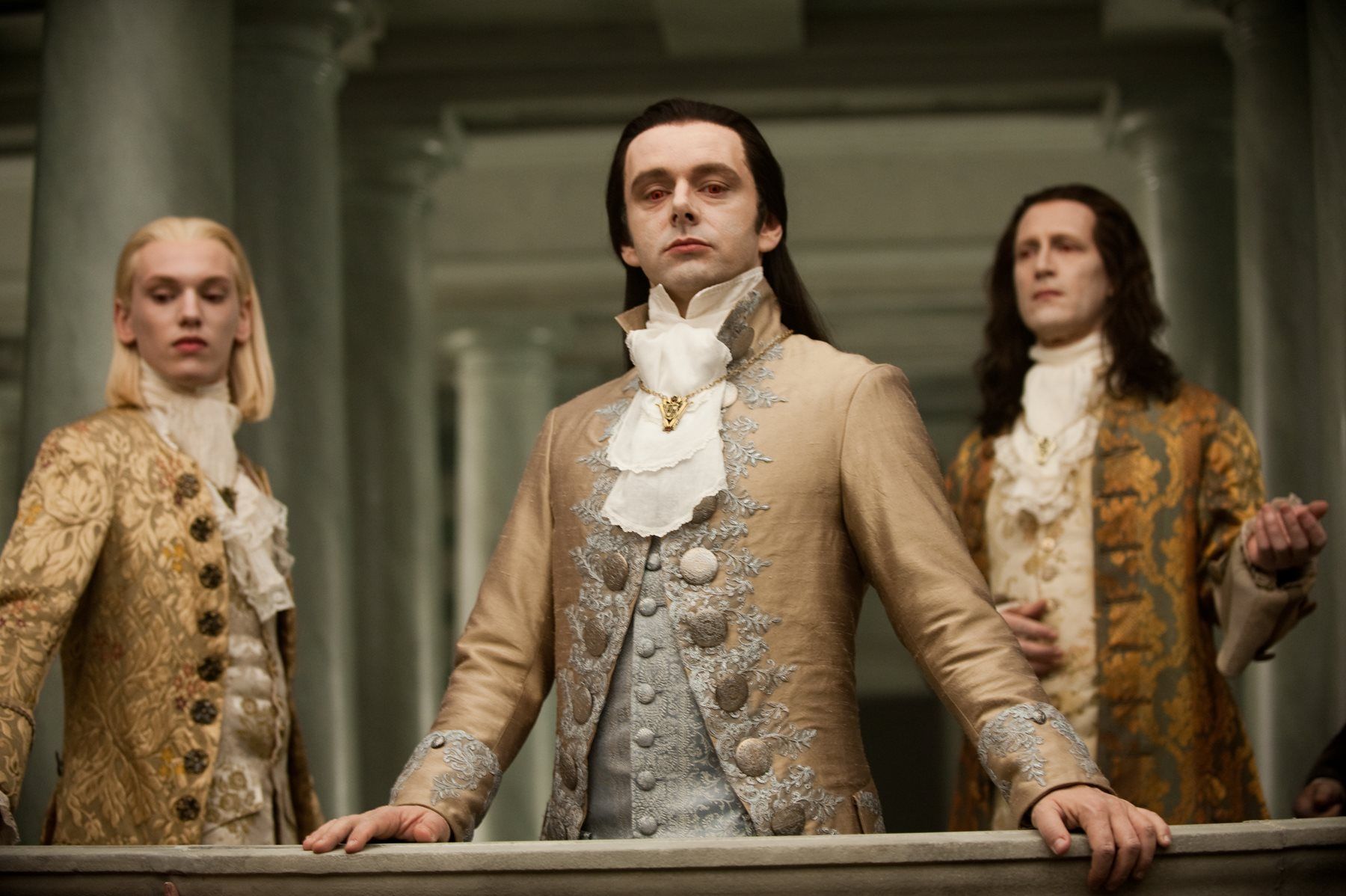Twilight Why Marcus Says “Finally” When He Dies
Twilight: Why Marcus Says “Finally” When He Dies
Stephenie Meyers’ bestselling Twilight saga wrapped up with Breaking Dawn, but why did minor villain Marcus celebrate when he died near the end?
You Are Reading :[thien_display_title]

The film adaptations of Stephenie Meyers’ bestselling paranormal romance saga Twilight wrapped up with Breaking Dawn, but why did minor villain Marcus celebrate when he died near the movie’s close? Although the Twilight movie adaptations were unfairly hated by critics, the series as a whole did an admirable job of condensing the complex mythology of Stephenie Meyers’ source novels without being bogged down by interminable backstory. But the creator’s decision to elide some vital background meant that only readers familiar with Twilight lore would understand the import of some of the film’s scenes.
The film series began with Thirteen director Catherine Hardwicke’s largely faithful 2008 hit Twilight, whose blockbuster success made stars of lead actors Robert Pattinson and Kristen Stewart and led to the release of the much-maligned New Moon, which introduced the Volturi. A five-strong coven of vampires, the Volturi consisted of Aro, Caius, Marcus, Sulpicia, and Athenodora. In the films, they’re thinly-sketched larger-scope villains who threaten the existence of the central couple Edward and Bella as they disapprove of the pair’s union and eventual offspring, the human-vampire hybrid Renesemee. But the films don’t offer a lot of in-depth backstory for this screwed-up villainous sort-of family.
As a result, when minor villain Marcus celebrates his death with a relieved sigh of “finally” as he’s torn limb-from-limb during the film’s climactic battle, it can be easy for viewers to presume this despondent bloodsucker is simply happy to be relieved of his eternal life. Out of the Volturi, Marcus is the character most frequently described as “bored” and, where his fellow immortal vamps Aro and Caius have reacted to eternal life by developing a cunning Machiavellian lust for power and a purely sadistic mean streak respectively, Marcus seems like the classic beleaguered immortal who is simply sick of living. The moment plays out as a triumph for a character who like all of the Volturi is far older than fellow vampire clan the Cullens, and as such has grown weary of humanity’s petty squabbles, Watchmen’s Dr. Manhattan-style.

Only that’s not quite the full story. This being Twilight, there’s a tragic love story behind Marcus’ malaise, and it’s one that the films fail to touch due to time constraints but one that colors his villainy with shades of moral complexity. When he was first turned, Marcus fell in love with Aro’s sister Didyme, who was his wife and the love of his life until Aro himself killed her to consolidate power and ensure Marcus wouldn’t abandon the Volturi. Although Marcus never discovered the betrayal, he was heartbroken by Didyme’s death and considered suicide, forcing Aro to have a subordinate mind-control him into compliance.
But the forlorn vamp was never the same after his loss, becoming withdrawn and aloof, the cold character viewers meet in the series. By the time his death arrives during Breaking Dawn’s deservedly divisive ending, it’s a relief because Marcus knows for the first time in centuries he’ll be at peace and reunited with his love… Which makes it all the more crushing when viewers discover that the entire battle is a misdirect, a fake-out ending sequence imagined by Ashley Greene’s Alice to show Aro that he wouldn’t win the fight and should retreat. Which he and the Volturi of course do, resulting in a happy ending for the Twilight saga’s heroes but no end to poor Marcus’ eternal lovelorn torment.
Link Source : https://screenrant.com/twilight-villain-breaking-dawn-marcus-finally-meaning/
Movies -What To Know About Love Games The New 90 Day Fiancé Discovery SpinOff
Witcher 3s Quest Director Is Now Working On League of Legends MMO
Veronica Mars Every Season Ranked According to Rotten Tomatoes
Why Miles Morales Programmable Matter Spider Suit Is The Best
The Umbrella Academy Every Episode Of Season One Ranked By IMDb Scores
Wallace And Gromit In LiveAction Is A Nightmare
This DC Comics Villain Just Bought an Entire COUNTRY
